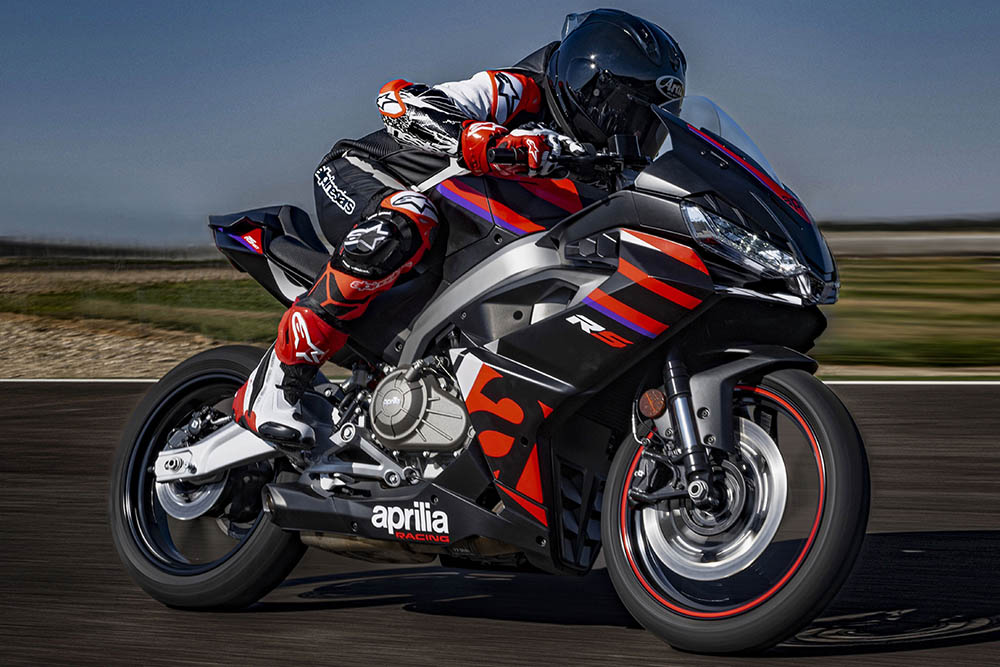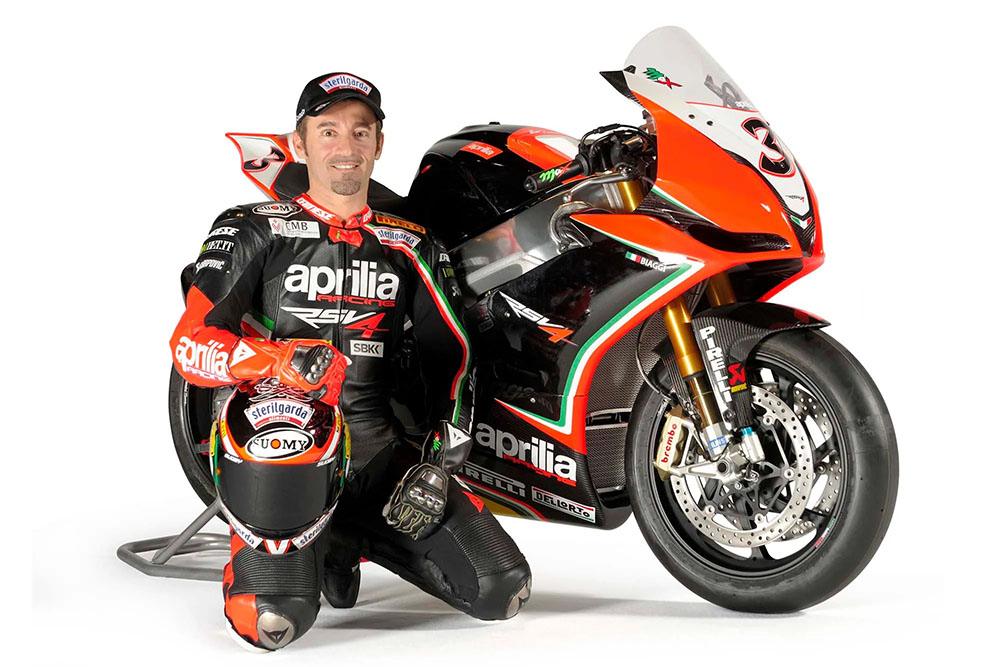Aprilia’s RS125 was the fastest and trickest learner bike you could buy when it was launched back in 1992.
It replaced the company’s fast and futuristic AF1 range and paid homage to Aprilia’s 125cc factory race bike, which had just won its first Grand Prix in the summer of 1991 when Alessandro Gramigni did the honours at the Brno circuit in Czechoslovakia. The all-Italian partnership went on to win the world title in 1992, and the RS125 road bike closely echoed the racer in looks and, to a degree, performance.
The road bike’s Rotax built two-stroke engine came restricted for most British learners, but a simple derestriction unlocked a reported 33bhp and a 100mph top speed. In sportsbike obsessed Britain it was the learner bike to have, while on the track Aprilia emerged as a dominant force in both 125 and 250cc Grands Prix. By 1994 the 125 was joined by the RS250, a Suzuki powered Grand Prix replica which would become the pinnacle of quarter-litre road bike technology. The road-going RS125 and RS250 were also popular in production bike racing, with riders like Cal Crutchlow, Jake Dixon and Casey Stoner cutting their teeth in the highly competitive Aprilia Superteen race series. An RS50 moped was also available, powered by the venerable (and highly tunable) Motori-Minarelli AM6 motor. If you were a sports bike loving youngster at the turn of the century, Aprilia certainly had you covered!
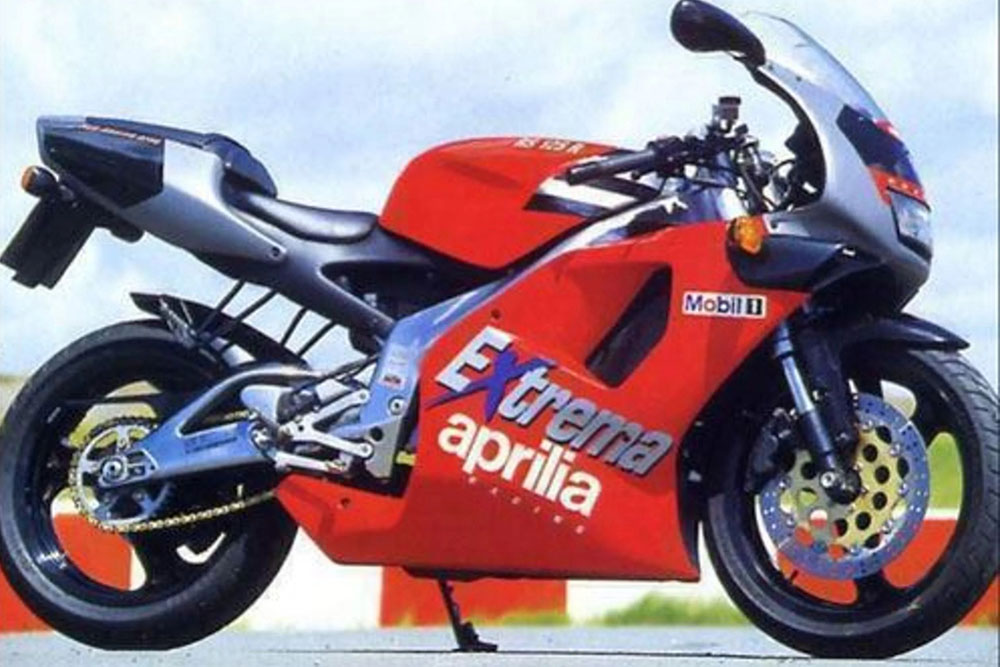
But times changed, both on and off the track. Emissions laws effectively killed off two-stroke road bikes, while licencing laws mean younger riders were now limited to more mundane machines early in their riding careers. On top of this, Aprilia’s racing dominance was ended by the introduction of the four-stroke Moto2 and Moto3 racing classes – replacing the outgoing 125s and 250s.
That said, Aprilia’s RS series of sports bikes were never just about two strokes. Introduced in 1998, the RSV1000 was a V-twin superbike in the mould of the Ducati 916. It raced with moderate success in the Superbike World Championship but was a real hit with the public, thanks in no small part to its excellent value for money. The RSV also spawned the first ‘Tuono’ which has been the high-barred, streetfightered cousin to every Aprilia RS model launched since.
The V-twin superbike was succeeded by the V4 RSV4, which took three world superbike rider titles (Max Biaggi in 2010 and 2012, and Sylvain Guintoli in 2014) and while this was neither as affordable or popular as the model it replaced, it was the top dog in the prestigious superbike category.
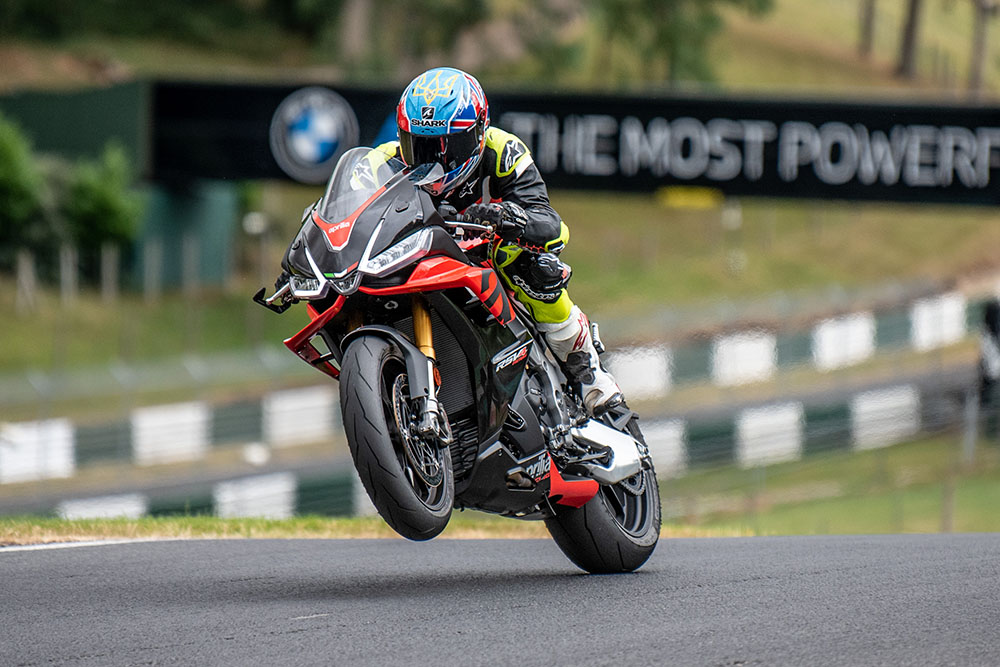
A decade on from that last world title and the motorcycling landscape has changed again. Aprilia’s racing programme focusses on the race winning RS-GP prototype in the MotoGP world championship, while the latest generation of small and middleweight sportsbikes focus on value for money and accessibility under the latest licensing laws.
Three decades on from the first RS125, Aprilia’s sportsbike range is arguably the most comprehensive of any manufacturer and shows the now Piaggio-owned brand’s total commitment to the race replica style machine. If you love sports bikes, Aprilia still has you covered!
The RSV4 remains a staple of the range, despite no longer being eligible to compete in the Superbike World Championship.
The flagship hyperbike has been regularly updated and now has an ‘oversized’ engine of 1099cc, delivering a staggering 217bhp and a top speed of almost 190mph. With a cutting edge electronics package and a chassis specification as good as anything on the market, the latest RSV4 confirms Aprilia’s ability to go head to head with fellow European giants like BMW and Ducati in the superbike market.
But what’s really interesting about the Noale company’s offering is their ability to fill almost every sector of the sportsbike market.
While there’s no longer a geared moped in the Aprilia range, the current RS 125 provides an entry for 17-year-olds to ride after completing their CBT. Now featuring a four-stroke engine, it’s no longer the highly strung ripsnorter of old, but a clean and sophisticated learner machine built to the current A1 licence regulations.
In more recent years Aprilia has filled the chasm between the 15bhp 125 and the 1100cc superbike. First came the RS 660, which features a sophisticated parallel-twin engine which is basically one bank of the RSV4’s V4 unit. The 660 is at the forefront of developing the new ‘Supertwin’ class, which now includes the Suzuki GSX-8R, Yamaha R7 and Triumph’s three-cylinder Daytona 660.
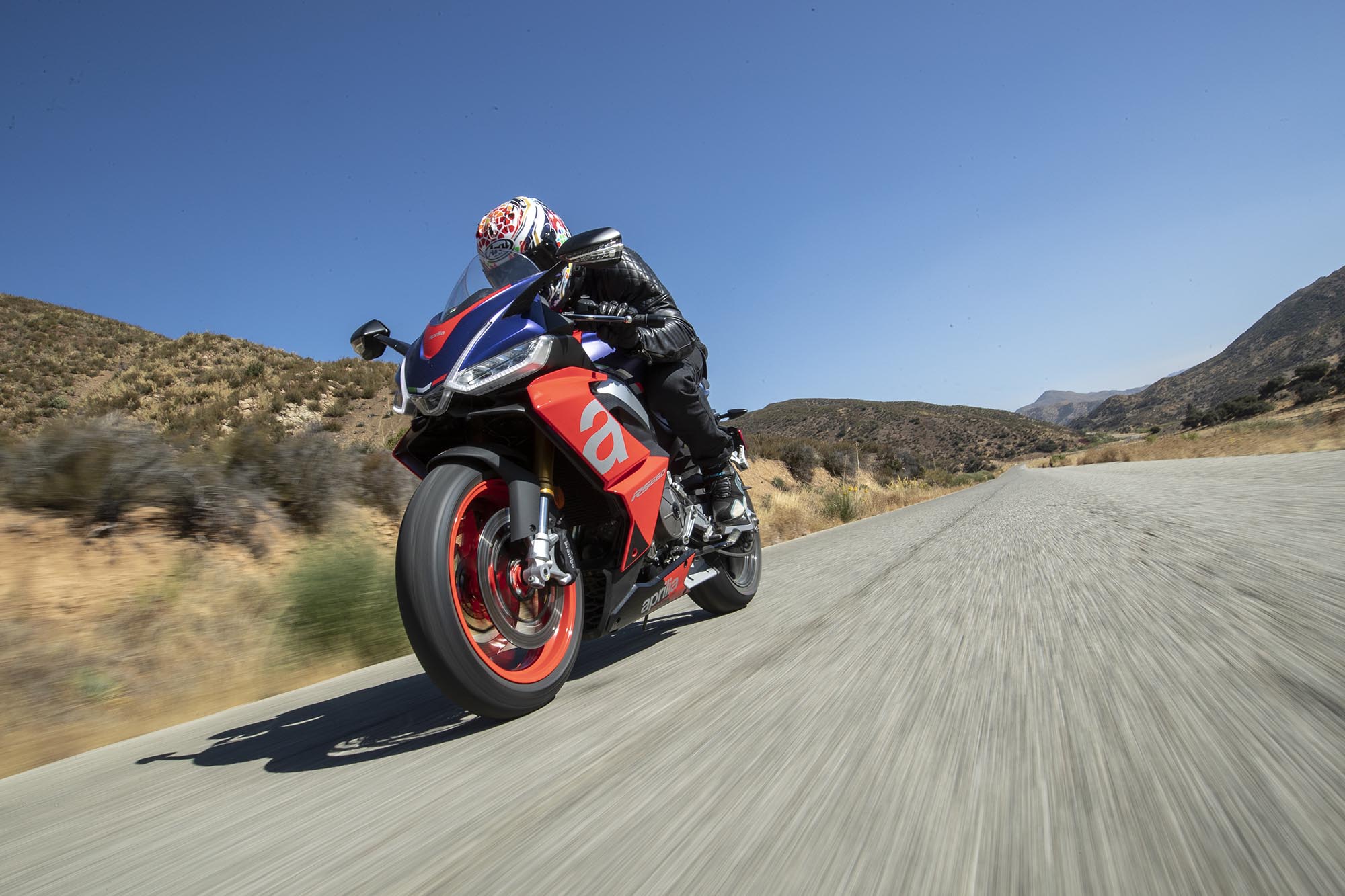
Taking up the role of the junior race bike, an ‘RS 250 SP’ is produced as a track only bike – being a spiritual successor to the first generation two-stroke 125s – while this year will see Aprilia’s range completed with the introduction of an all-new RS 457, which has been developed specifically to meet the A2 licence category – pitching itself against models like Honda’s CBR500R, KTM’s RC 390 and the new Kawasaki Ninja 500. The 457 is a parallel twin, but created in the tradition of those 1990s RS models, with a high spec and class leading power-to-weight ratio.
Like the RS125 and 250 of old, it is designed to get younger riders into motorcycling. Prices have yet to be announced, but the bike looks great and, if they prove to be affordable, the Aprilia could well set a new benchmark in the increasingly popular junior supersport sector.
